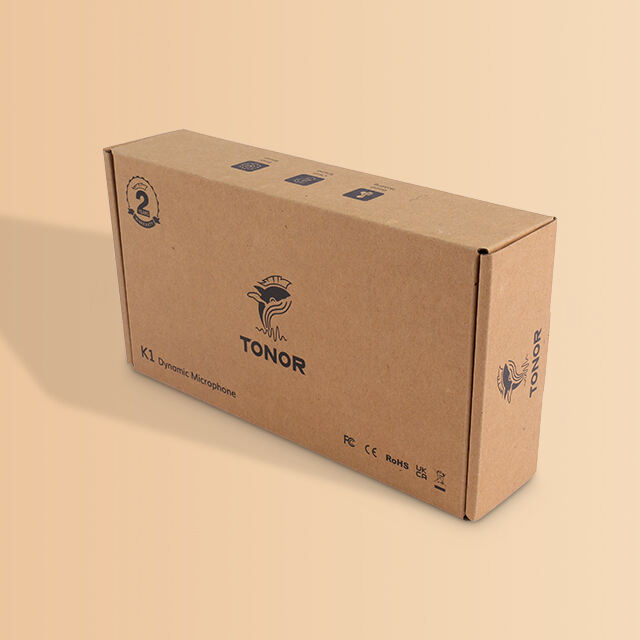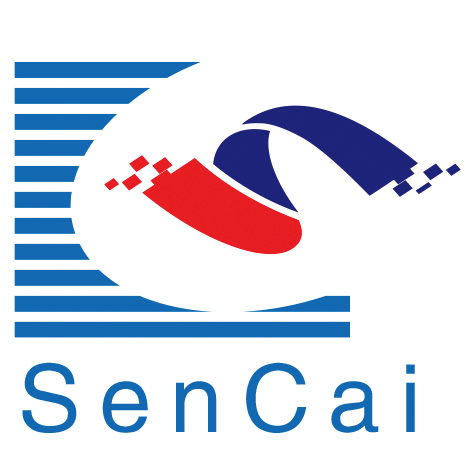
The global eco-friendly packaging market is experiencing substantial growth, projected to reach $500 billion by 2027. This growth reflects a significant shift towards sustainable packaging practices as businesses and consumers alike become increasingly aware of environmental issues. One of the primary drivers is the consumer demand for more sustainable packaging options, which is pushing brands to adopt alternatives like paper boxes to address environmental concerns. Notably, major players in the packaging industry are leading by example, prioritizing sustainable solutions that influence market trends and spur innovations. As eco-friendly packaging becomes more central in corporate strategies, paper boxes are carving a prominent niche due to their sustainable attributes.
In the transition towards a circular economy, paper packaging stands out due to its biodegradable and recyclable nature. Unlike plastic, which can persist in landfills and oceans for centuries, paper decomposes relatively quickly. This property makes it a favored choice in circular systems that emphasize materials which can be efficiently reused or recycled. Studies demonstrate that using biodegradable packaging such as paper can lead to remarkably lowered carbon footprints—24% lower compared to their plastic counterparts. Consequently, businesses aiming to decrease their environmental impact are embracing paper as a more responsible and eco-friendly alternative in their packaging solutions.
Custom box solutions provide businesses with the flexibility to tailor their packaging to the specific needs of industries such as food, cosmetics, and electronics. Custom boxes offer the versatility needed to enhance brand identity while cultivating unique consumer experiences. The ability to customize allows companies to market their products more effectively, tapping into trends like digital printing on paper boxes, which increases market appeal and engagement. By integrating advanced customization techniques, businesses are not only catering to diverse industry demands but are also enhancing the overall consumer experience with personalized and environmentally friendly packaging options.
Paper packaging significantly reduces energy consumption in its production compared to plastic. Producing paper requires about 25% less energy, making it a more sustainable choice. This reduction in energy use also correlates with lower greenhouse gas emissions, which is essential for businesses looking to minimize their carbon footprints. A lifecycle analysis reveals that the energy savings span all stages of paper product usage, from creation to disposal. Transitioning to paper boxes allows businesses to align with sustainability targets, particularly those in energy-intensive industries, as they work towards more eco-friendly practices.
Sustainable forestry practices in paper production greatly contribute to natural carbon sequestration, a critical process in combating climate change. By sustainably managing forests, it is possible to store 50-70% more carbon compared to unmanaged forests. Such efforts not only support the environment but also enhance the green credentials of businesses involved in paper packaging. Understanding the link between paper packaging and responsible forest management can increase consumer awareness and support for eco-conscious products.
Lightweight paper boxes contribute to transport efficiency by reducing fuel consumption. Their lower weight compared to plastic packaging means vehicles can carry more items with less energy, reducing overall greenhouse gas emissions. Paper boxes also offer a streamlined structure that optimizes stacking and storage during transit, significantly cutting logistical costs. By adopting lightweight packaging, companies can enhance their supply chain operations, leading to reduced emissions and more sustainable practices.
Paper boxes offer significant environmental benefits due to their biodegradability. Typically, paper boxes decompose naturally within 2-6 months, a stark contrast to plastic, which can persist in the environment for over 400 years. This rapid decomposition helps alleviate the monumental waste management challenges posed by plastic pollution, especially in marine and terrestrial ecosystems. Many environmental organizations have advocated for paper-based solutions to combat the adverse effects of plastic waste, promoting cleaner, more sustainable habitats for all life forms.
Innovative advancements in compostable food packaging are gaining traction, focusing on zero waste. These products are designed to decompose quickly in commercial composting facilities, transforming into a nutrient-rich product suitable for agricultural purposes. Companies are exploring innovative materials, like plant-based alternatives, to enhance their packaging's compostability further. Such innovations not only align with sustainable practices but also meet the increasing consumer demand for eco-friendly disposable food packaging boxes.
The demand for aesthetically pleasing yet environmentally conscious cake boxes has surged, particularly for zero-waste events. Known for utilizing recycled and sustainable materials, these cake boxes cater to consumers' preferences for products that minimize their ecological footprint. By marketing these solutions as eco-conscious choices, companies can significantly boost brand loyalty among customers who prioritize sustainable practices. These efforts underscore the importance of considering sustainability in every aspect of product presentation, from materials used to the overall design, which aligns with the growing trend of eco-friendly packaging boxes.
Forest Stewardship Council (FSC) certification plays a vital role in ensuring that paper boxes and other products are sourced in an environmentally responsible manner. Companies utilizing FSC-certified materials can effectively communicate their commitment to ethical and sustainable sourcing, enhancing their reputation among eco-conscious consumers. Research indicates that FSC-certified practices contribute to the preservation of biodiversity and ecosystem health, making them a preferred choice for organizations aiming to support environmental sustainability. With rising interest in eco-friendly packaging, businesses have a unique opportunity to showcase their commitment to responsible sourcing through FSC certification.
As urbanization increases, the pressure on working forests intensifies, underscoring the necessity of preservation initiatives to ensure the sustainable sourcing of materials like custom box packaging. Balancing the demand for development with effective forest conservation strategies is essential to mitigate the adverse impacts of urban expansion on natural resources. Urban forestry programs are instrumental in promoting sustainability within communities, offering a feasible solution to support ecological balance while maintaining necessary development. By integrating these programs, communities can simultaneously foster growth and contribute to the preservation of critical ecosystems.
Recent studies highlight the encouraging trend of increasing reforestation rates in North America and Asia, crucial for carbon offsetting and environmental resilience. In regions adopting sustainable practices, tree planting initiatives are pivotal in restoring biodiversity and preserving ecosystem services, directly benefiting both wildlife and human populations. Successful reforestation projects, such as those focusing on eco-friendly packaging boxes in these areas, can significantly inspire consumer confidence, affirming that paper boxes remain a sustainable and ethical choice. Emphasizing these successes not only strengthens market trust but also advocates for continued environmental stewardship in the paper packaging industry.
The recycling rate for corrugated paper boxes stands at an impressive 96%, demonstrating their integral role in circular systems. Corrugated boxes, often used for packaging and shipping, exemplify how effective recycling initiatives can achieve high environmental standards. These recycling systems enable industries to substitute nearly 50% of virgin fiber use with recycled materials, reducing ecological footprints substantially. Ensuring continuous consumer participation and robust recycling programs is essential in maintaining such high recycling rates and advancing towards a more sustainable future.
Upcycling disposable food packaging boxes presents creative opportunities for waste reduction and sustainability. Many local businesses have adopted innovative measures to repurpose used packaging into artwork, storage solutions, or other functional products, presenting them as alternatives to disposal. Educational programs centered around upcycling can engage communities, making sustainability a collective endeavor and inspiring more participants to consider eco-friendly alternatives in waste management.
Incorporating closed-loop manufacturing processes reflects a commitment to sustainability by striving to fully recycle products at the end of their lifecycle. These systems minimize waste generation and conserve natural resources by integrating recycled materials back into production. Businesses investing in closed-loop manufacturing not only gain significant returns but also reduce environmental impact, fostering innovation and sustainability. Such initiatives are pivotal in creating more resilient recycling systems and encouraging industries to embrace circular economy principles.
A growing number of consumers are prioritizing sustainable packaging, with surveys revealing that 83% prefer brands committed to eco-friendly options. This shift in preference significantly influences purchasing decisions as environmental consciousness becomes a key factor in consumer behavior. As a result, markets are actively developing innovative packaging solutions that meet these evolving expectations, aligning business practices with consumer values.
Research indicates a positive premium perception associated with eco-friendly packaging materials. Consumers show a willingness to pay more for products packaged sustainably, which enhances overall brand value. As sustainability gains traction as a substantial selling point, brands increasingly adopt eco-friendly packaging to distinguish themselves in competitive markets.
Using recycled paper products offers brands a unique opportunity to showcase their commitment to sustainability, resonating strongly with eco-conscious consumers. Effective branding strategies involve crafting engaging narratives around recycled materials that not only reinforce environmental commitments but also foster customer loyalty. Tailored typography and designs further enhance the packaging experience, linking storytelling with eco-friendly principles.
Advancements in water-resistant coatings are revolutionizing the potential of paper boxes, allowing them to compete with plastic in challenging packaging environments. These coatings preserve the integrity of products even under wet conditions, effectively addressing one of paper's major vulnerabilities. Research indicates that these coatings can significantly reduce the reliance on single-use plastic packaging solutions, offering a more sustainable alternative. By enhancing durability, water-resistant coatings enable paper packaging to maintain product quality and broaden the range of applications for eco-friendly packaging boxes.
The integration of smart packaging technologies into paper substrates combines functionality with sustainability, creating a new breed of packaging solutions. This innovation includes features such as embedded QR codes and sensors, which provide consumers with important product information and usage instructions. By enhancing consumer engagement and promoting more sustainable consumption patterns, smart packaging turns passive packaging into an interactive and informative tool. It emphasizes the eco-friendly potential of paper substrates while meeting growing consumer demands for convenience and connectivity.
Emerging research into seaweed-based materials is paving the way for biodegradable, paper-like packaging that reduces reliance on traditional tree-based resources. These innovations aim to tackle environmental issues by providing a sustainable alternative that is both compostable and reduces marine and plastic pollution. Seaweed-based packaging is particularly promising because of its potential to offer durability and versatility similar to conventional packaging while enhancing the eco-friendly profile of disposable food packaging boxes. This solution not only targets ecological concerns but also meets the increasing consumer demand for sustainable alternatives.


Copyright © copyright © 2024©Fujian Sencai Times Technology Co., Ltd. - Privacy policy